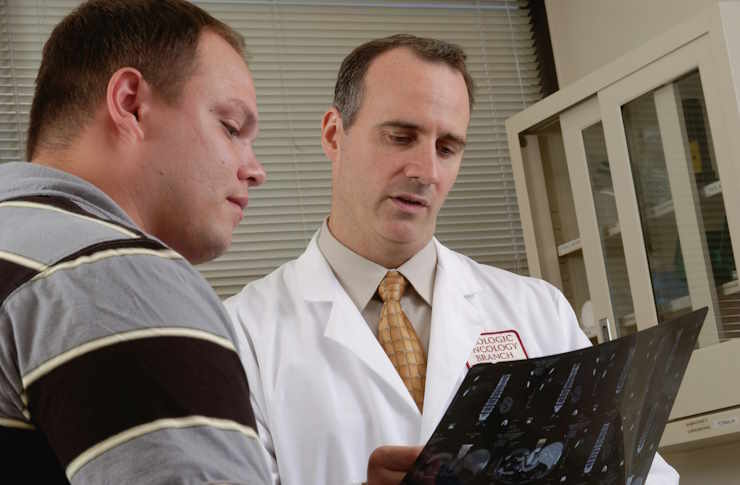Recognize the Early Warning Signs of Colon Cancer – Learn About Effective Treatments
Colon cancer remains one of the most common yet potentially preventable forms of cancer worldwide. Despite medical advances, many people miss the early warning signs that could lead to timely intervention and improved outcomes. Understanding these symptoms and the available treatment options is crucial for everyone, especially those over 45 or with family history of colorectal cancers. Early detection significantly increases survival rates, with over 90% of patients surviving five years or more when diagnosed at a localized stage.

What Are the Early Warning Signs of Colon Cancer?
Changes in bowel habits are often the first indicators that something might be wrong. These changes include persistent constipation or diarrhea that lasts for more than a few days, or a noticeable difference in stool consistency. Narrow, ribbon-like stools may indicate a tumor restricting the passage in the colon. Blood in the stool, which might appear bright red or very dark in color, should never be ignored as it’s one of the most common early signs of colorectal issues.
Unexplained weight loss, chronic fatigue, and persistent abdominal discomfort such as cramps, gas, or pain are additional warning signs that warrant medical attention. Many people dismiss these symptoms as dietary issues or temporary digestive problems, but when they persist for weeks, they should be evaluated by a healthcare professional. Feelings of incomplete evacuation after bowel movements can also signal potential problems with the colon.
How Is Colon Cancer Diagnosed and Staged?
When colon cancer is suspected, physicians typically begin with a thorough physical examination and review of medical history. Diagnostic procedures usually start with a colonoscopy, which allows doctors to visually examine the entire colon and rectum using a flexible tube with a camera. During this procedure, doctors can remove suspicious polyps or take tissue samples for biopsy.
Blood tests including a complete blood count may reveal anemia, which could indicate internal bleeding. Imaging studies such as CT scans, MRI, or PET scans help determine if cancer has spread beyond the colon. After diagnosis, doctors assign a stage to the cancer based on how far it has progressed:
-
Stage I: Cancer has grown through the mucosa but hasn’t spread beyond the colon wall
-
Stage II: Cancer has grown through the colon wall but hasn’t affected lymph nodes
-
Stage III: Cancer has spread to nearby lymph nodes but not to other parts of the body
-
Stage IV: Cancer has metastasized to distant organs such as the liver or lungs
What Treatment Options Are Available for Colon Cancer?
Treatment approaches vary based on the cancer’s stage, location, and the patient’s overall health. Surgery remains the primary treatment for most cases of colon cancer. For early-stage tumors, minimally invasive procedures like laparoscopic surgery or even colonoscopic removal might be sufficient. More advanced cases typically require a colectomy (removal of part of the colon) or hemicolectomy (removal of half the colon), with subsequent reconnection of the healthy sections.
Chemotherapy is often recommended after surgery for stage III and IV colon cancers. Common chemotherapy regimens include FOLFOX (leucovorin, 5-fluorouracil, and oxaliplatin) or CAPOX (capecitabine and oxaliplatin). These medications target rapidly dividing cells throughout the body to kill remaining cancer cells that surgery might have missed. Side effects can include nausea, hair loss, fatigue, and increased susceptibility to infections.
How Are Advanced Treatments Improving Colon Cancer Outcomes?
Modern approaches to colon cancer treatment have expanded significantly in recent years. Targeted therapy drugs like bevacizumab (Avastin), cetuximab (Erbitux), and panitumumab (Vectibix) specifically attack cancer cells or block their growth mechanisms without harming normal cells as extensively as traditional chemotherapy. These targeted treatments are often used for patients with specific genetic mutations or advanced disease.
Immunotherapy has emerged as a promising option, particularly for patients whose tumors have specific genetic characteristics like microsatellite instability-high (MSI-H) or deficient mismatch repair (dMMR). Drugs such as pembrolizumab (Keytruda) and nivolumab (Opdivo) help the body’s immune system recognize and attack cancer cells more effectively. Clinical trials continue to explore combination approaches that may further improve survival rates and quality of life for patients with advanced colon cancer.
What Lifestyle Changes Support Colon Cancer Treatment and Recovery?
Adopting certain lifestyle modifications can complement medical treatment and potentially improve outcomes. Nutrition plays a crucial role, with evidence suggesting that a diet rich in fruits, vegetables, whole grains, and lean proteins supports overall health during treatment. Limiting red meat and processed foods may help reduce inflammation and support digestive health.
Regular physical activity, even moderate movement like walking, can help manage treatment side effects and improve energy levels. Studies show that exercise may reduce the risk of cancer recurrence by up to 50% in some patients. Stress management techniques such as meditation, yoga, or counseling can help patients cope with the emotional challenges of diagnosis and treatment. Support groups, whether in-person or online, provide valuable community connections and practical advice from others who understand the journey firsthand.
This article is for informational purposes only and should not be considered medical advice. Please consult a qualified healthcare professional for personalized guidance and treatment.




